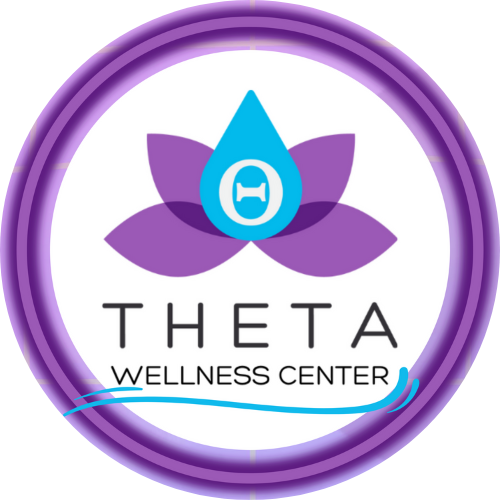




What is Floating?
Floating, or float therapy, is a service that uses a float pod to create a weightless environment free from any external stimulation. Float pods, also known as sensory deprivation tanks, were invented in 1954 by physician, neuroscientist, and writer John C. Lilly. Lilly wanted to test the effects of sensory deprivation on the human brain. Thus, the sensory deprivation tank was born.
It was discovered that spending time in an environment free from the effects of gravity and the over-stimulation of the outside world created tremendous psychological and physical benefits, as well as allowed individuals to explore inner realms that they never had before.
How Do You Float?
The 5-foot by 9-foot float pod or cabin or pool is filled to a height of 10 inches with water and about 800 to 1,000 lbs of Epsom salt, creating a solution that is denser than the human body. So, if you can imagine an ice cube floating in the water, the same principle applies here, and you are the ice cube, only much warmer.
In order to eliminate tactile stimulation, the water is kept at approximately 93.5 degrees, which is the average external temperature of the human skin. After about 10 minutes of stillness, the border between you and the water disappears, which can create the illusion of no longer having a body at all.
The pod is also lightproof and soundproof so that visual and auditory stimulation are also eliminated. This leads float pod users to feel as if they are pure consciousness floating in a giant void.

Float vessels
So Where Does One Float?
Float vessels
So Where Does One Float?
Meet Your Float Vessels
The float pool is completely open, eliminating any anxiety from claustrophobia.
Theta’s Float pool
We designed this in order to adapt to the large population of clients that have fears of claustrophobia. While fear can be a tool that we use to better ourselves, it can also be debilitating and keep us from doing important things in life. So here is our pool!
One thing we didn’t anticipate is how much WE would love the pool, fear or not. In some ways it’s just like floating in our other vessels, but it is also very much its own experience. So even if you are a seasoned floater, we’d like to encourage you to give it a go!
Float cabin
This is somewhat in between a pod and a pool. It also happens to be our largest option as far as surface area to float in. The cabin is enclosed, but tall enough to stand in, and even comes with a built in light that can be toggled on or off at the floater’s discretion.
We typically discourage adults from floating together in the same vessel, but we find that parents floating with their children usually have a really neat experience. If this sounds like something you may be interested in trying with your child, the cabin is your means of venturing forth.
The cabin is our biggest float vessel.

Why Float?
May Water Be The Cure
Why Float?
May Water Be The Cure
Why Float?
The most obvious answer is…. it feels AMAZING! Imagine laying down on a warm bed of nothing but feeling supported in every way. Your muscles soon begin to understand that fighting gravity is not an issue here, and they relax deeper and deeper, and you reach a point where you feel more like the water you are supported in rather than the human who has spent its entire life battling physics! Your mind soon follows suit. You breathe deeper and slower. With each exhale, any worries or heaviness are expressed, and you fall into a gentle rhythm. Are you awake, or are you dreaming?
You’re in Theta!
Your rest periods are as important to your health and wellness as the time you spend developing yourself, physically and mentally.
Self-care is optimization!
It doesn’t stop at “feels amazing”
Floating has been shown to have numerous physical and mental benefits, and more are being found as research grows around this practice.
Some of these benefits include:
Lowering cortisol levels (the stress hormone)
Alleviating anxiety and depression
Reducing inflammation
Reducing pain associated with arthritis, fibromyalgia, scoliosis, and other chronic pain conditions
Reducing symptoms of burnout, jetlag, and insomnia
Reduction in severity of skin conditions such as eczema, psoriasis, and even poison oak and ivy
Reduction in severity of migraines and headaches
May potentially improve recovery from TBIs (Traumatic brain injuries). More studies are needed
Oh, and performance enhancement!!!
Floating has been shown to…
Improve creativity and spontaneity in musicians and other artists
Increase acquisition of skills through visualization (potentially due to the theta brain-wave-inducing effects of floating)
Elite special forces units use floating during training to aid in memorization and while learning languages
Athletic organizations are starting to incorporate floating for non-impact training protocols (visualization) as well as recovery
Improve recovery time from exercise

Your First Float
Your First Float
Your First Float
Your First Float
Before you begin your journey into deep space, be sure to read over these tips to get the most out of your experience. To ensure you are prepared for your first float, be sure to read through this section as well as the FAQs below.
Avoid Caffeine
While it is not mandatory to avoid caffeine before you float, we strongly recommend it. Caffeine can make it more difficult for you to relax your mind and let go. The caveat is, if you are using flotation for creativity or visualization, a little caffeine can be beneficial.
Eat a Light Meal
It is best to follow the middle way with food and drink prior to floating. Eat a light meal or a snack about an hour before your appointment, and don't drink too much liquid. You may also want to avoid overly spicy foods since you will be horizontal while floating.
Come in Relaxed
You may be stepping down from a busy mind to a deeply relaxed state of mind, and it is best to do this gradually. Doing some relaxation exercises before you float will greatly improve your experience in the tank. Some breath work or yoga may help with this transition.
Silence Your Phone
This is your chance to be completely without distractions. We do require that all electronics are silenced within the doors of Theta and if you need to take a call, we ask that you step outside or visit the washroom.
Ask Your Doctor
If you have a pacemaker, epilepsy, eczema, or if you have any other medical conditions and are unsure if floating is right for you, ask your doctor what is best.
Let Go
It's important to remember that this is your experience, and that there is no wrong way to float, except face down, that’s no good. Explore the infinite possibilities of your mind, watch your thoughts as they float by and let them go!

Questions & Answers
Questions and Answers
Questions & Answers
Questions and Answers
Frequently Asked Questions
Can I Float if i'm claustrophobic?
This is probably the most common apprehension about floating. We find that 95% of the time, people who have this concern are able to get comfortable after the first few minutes. Remember that you are in complete control, and can exit the tank at any time. There is also a light setting for floating with the door propped or fully open. We also have an open float pool, that isn’t enclosed at all!
how are the Float tanks kept sanitary?
We follow similar health department regulations for public pools and spas. Between each person, water is passed through a series of filters three times, and we also schedule filtration overnight. Our filtration process includes mechanical and UV steps, and we use a dilute solution of hydrogen peroxide. The real magic of our filtration is the salt itself. Our float vessels have twice the salinity of the dead sea, so the water is doubly deadly to microbes!
WHAT HAPPENS IF I FALL ASLEEP While Floating?
It is perfectly fine to fall asleep in the tank. In fact, some individuals sleep in float tanks on a regular basis! Because the water is much denser than your body, it is impossible for you to sink. The worst that could happen is an abrupt awakening to salt in your eyes. We do have protocols in place if the music doesn’t wake you up. First, we turn it up, then we turn on the filtration for a brief burst of water. That should do the trick. In the rare event it doesn’t, we will come a knockin.
do I need to bring anything to My Float Session?
Come as you are! We keep towels, ear plugs, blow dryers, and other useful things here at the spa for you. While you may wear a swimsuit if that makes you more comfortable, we encourage floating nude. Firstly, it helps keep the tanks cleaner, and more importantly, it is a better experience.
are there any cases where someone isn't allowed to float?
Float therapy is very accessible and can benefit most people. If you have epilepsy, a pacemaker, eczema, blackouts, a recent surgery or serious injury, or similar conditions, it is best to consult with your physician before you float. Pregnant women should also talk to their doctor before scheduling, though floating can be very helpful in easing the pains of pregnancy. Lastly, we ask that you abstain from floating if you recently dyed your hair or had tattoo work done.
can two people float together?
Yes, however, you must be aware of a few things. Floating is a very personal experience, but can be neat and bonding thing to do with a child or a partner. It can also be very distracting and not very relaxing. You just have to know that you will feel every ripple, and hear every sound that your co-floater makes. So if someone starts there snoring before you get settled in, you may not get settled in. At Theta, our policy is that both floaters must have completed a minimum of 3 floats before embarking on a tandem float.


















